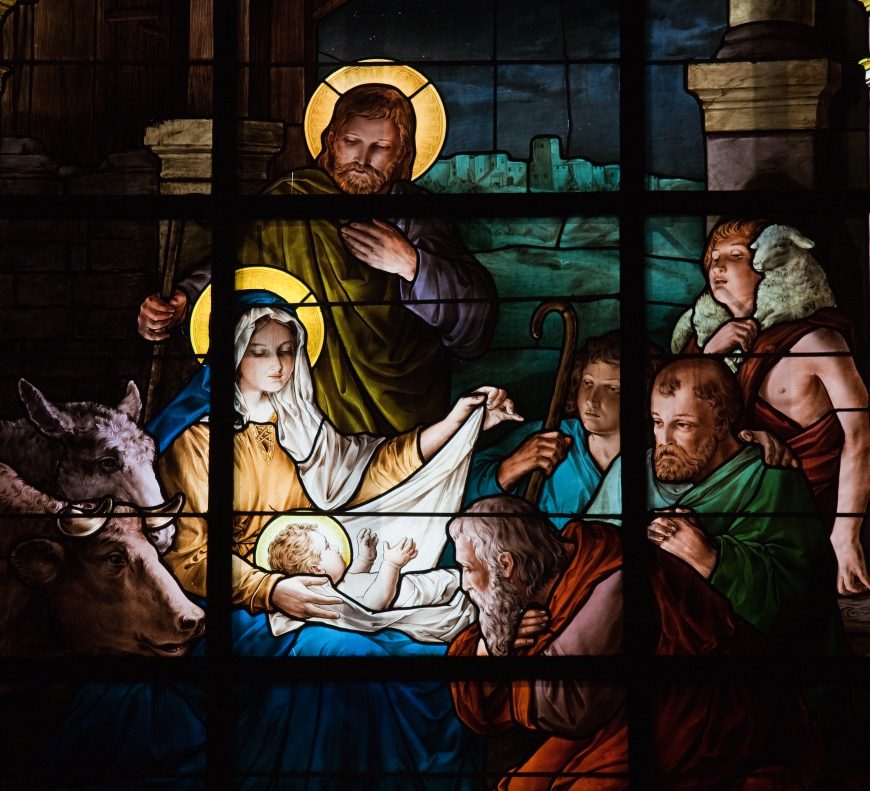Any agnostic or atheist whose childhood has known a real Christmas has ever afterwards, whether he likes it or not, an association in his mind between two ideas that most of mankind must regard as remote from each other; the idea of a baby and the idea of unknown strength that sustains the stars. His instincts and imagination can still connect them, when his reason can no longer see the need of the connection; for him there will always be some savor of religion about the mere picture of a mother and a baby; some hint of mercy and softening about the mere mention of the dreadful name of God. But the two ideas are not naturally or necessarily combined.
It has been created in our minds by Christmas because we are Christians; because we are psychological Christians even when we are not theological ones. In other words, this combination of ideas has emphatically, in the much disputed phrase, altered human nature. There is really a difference between the man who knows it and the man who does not. It may not be a difference of moral worth; but it is a plain fact about the crossing of two particular lights, the conjunction of two stars in our particular horoscope. Omnipotence and impotence, or divinity and infancy, do definitely make a sort of epigram which a million repetitions cannot turn into a platitude. It is not unreasonable to call it unique. Bethlehem is emphatically a place where extremes meet.
No other story, no pagan legend or philosophical anecdote or historical event, does in fact affect any of us with that peculiar and even poignant impression produced on us by the word Bethlehem. No other birth of a god or childhood of a sage seems to us to be Christmas or anything like Christmas. The truth is that there is a quite peculiar and individual character about the hold of this story on human nature; it is not in its psychological substance at all like a mere legend or the life of a great man. It does not exactly in the ordinary sense turn our minds to greatness; to those extensions and exaggerations of humanity which are turned into gods and heroes, even by the healthiest sort of hero worship. It does not exactly work outwards, adventourously, to the wonders to be found at the ends of the earth. It is rather something that surprises us from behind, from the hidden and personal part of our being; like that which can sometimes take us off our guard in the pathos of small objects or the blind pieties of the poor. It is rather as if a man had found an inner room in the very heart of his own house, which he had never suspected; and seen a light from within.
It is if he found something at the back of his own heart that betrayed him into good. It is not made of what the world would call strong materials; or rather it is made of materials whose strength is in that winged levity with which they brush and pass. It is all that is in us but a brief tenderness that is there made eternal; all that means no more than a momentary softening that is in some strange fashion become strengthening and a repose; it is the broken speech and the lost word that are made positive and suspended unbroken; as the strange kings fade into a far country and the mountains resound no more with the feet of the shepherds; and only the night and the cavern lie in fold upon fold over something more human than humanity.
Comment: The mysteries of our Lord’s life are packed with power, which is precisely the reason why we meditate upon them in the Rosary.
Merry Christmas and a Blessed New Year!
Thomas L. Mulcahy
Note: This highly edited and condensed quote is taken from The Everlasting Man by G.K. Chesterton (from a much longer chapter called “The God in the Cave”). Chesterton’s book is highly recommended.

